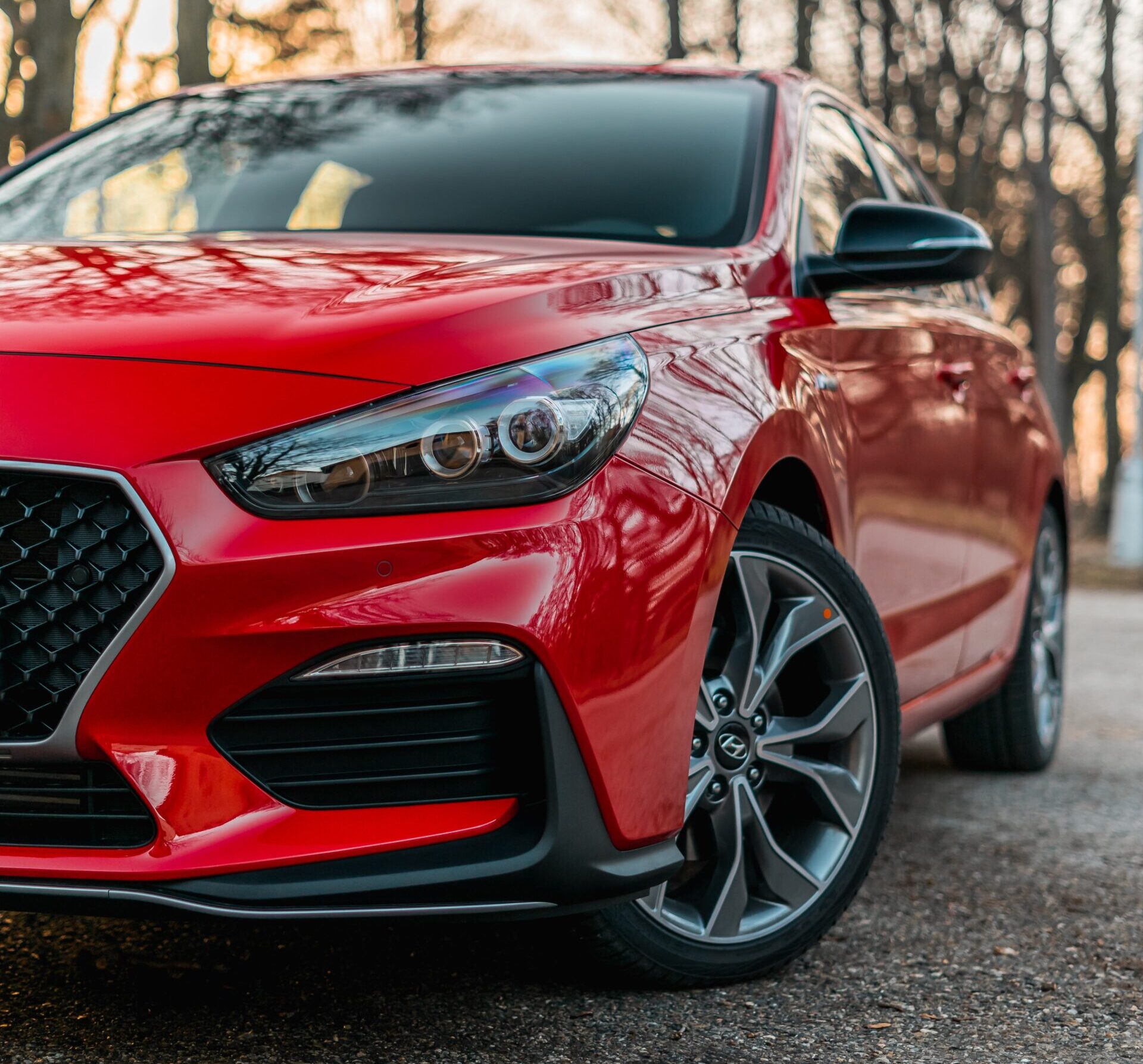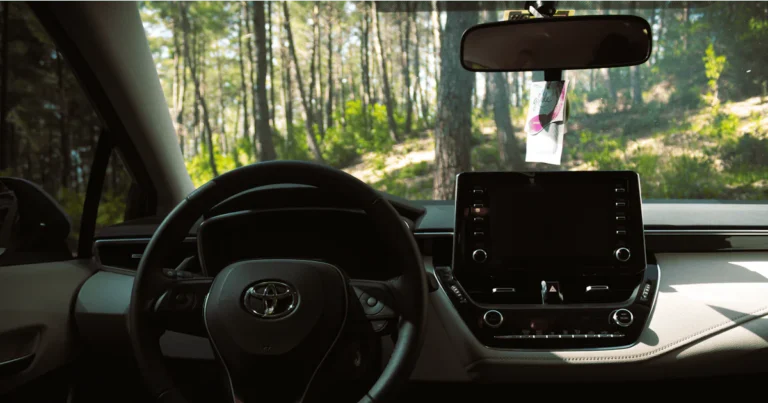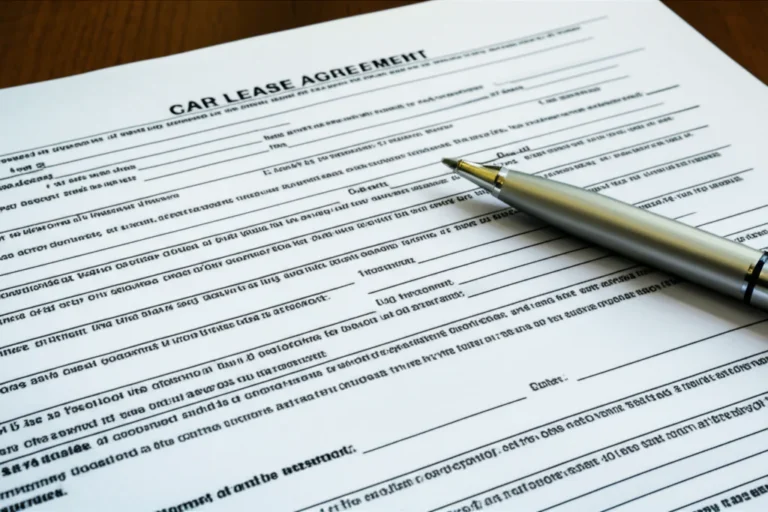Support our educational content for free when you purchase through links on our site. Learn more
Honda Civic Lease $0 Down: 7 Insider Secrets for 2025 🚗
Picture this: You stroll into a dealership, flash a confident smile, and drive off in a brand-new Honda Civic—without dropping a dime upfront. Sounds like a dream, right? Well, the “$0 down” lease deal on the Civic is one of the hottest offers out there in 2025, but is it really as good as it sounds? Spoiler alert: It can be, but only if you know the insider tricks and hidden fees lurking beneath the shiny surface.
In this deep dive, we’ll unravel the mystery behind the $0 down lease, reveal the pros and cons, and share expert negotiation tips that can save you hundreds (or even thousands) over the life of your lease. Plus, we’ll guide you through credit requirements, mileage traps, and what happens when your lease ends. Ready to become a savvy Civic leaser and avoid rookie mistakes? Buckle up!
Key Takeaways
- $0 down means no capitalized cost reduction, but expect upfront fees like first month’s payment and taxes.
- Excellent credit (720+) is usually required to qualify for the best $0 down Civic lease deals.
- Leasing preserves cash flow and reduces risk but results in higher monthly payments than putting money down.
- Negotiate the car’s selling price (capitalized cost) aggressively—even on $0 down deals—to lower payments.
- Watch out for mileage limits and wear-and-tear fees that can add unexpected costs at lease-end.
- At lease-end, you can return, buy out, or trade in your Civic—each with its own financial implications.
Ready to find your perfect Honda Civic lease deal?
- 👉 Shop Honda Civic Leases on: TrueCar | Edmunds | Honda Official Offers
Table of Contents
- ⚡️ Quick Tips and Facts: Your Honda Civic Lease Cheat Sheet
- 🚗 The Enduring Appeal of the Honda Civic: A Legacy of Reliability and Style
- 🤯 Demystifying the “$0 Down” Honda Civic Lease: Is It Truly Zero?
- 👍 The Pros and Cons of a Zero Down Honda Civic Lease: Weighing Your Options
- 📊 Honda Civic Lease vs. Buy: The Ultimate Showdown for Your Wallet
- 🔑 Unlocking Your Honda Civic Lease: Credit Score and Eligibility Requirements
- 💰 Beyond the “$0 Down”: Understanding All Your Honda Civic Lease Costs
- 🛡️ Protecting Your Investment: Insurance and Maintenance for Your Leased Civic
- 🛣️ Mileage Limits and Overages: Don’t Get Caught Off Guard!
- 🤝 Negotiating Your Honda Civic Lease Deal: Even with $0 Down!
- 🔄 The Grand Finale: Your Honda Civic Lease End Options
- 🗺️ Finding the Best Honda Civic Lease Deals Near You: Regional Insights
- 🧐 Common Mistakes to Avoid When Leasing a Honda Civic with $0 Down
- 🤔 Is a $0 Down Honda Civic Lease Your Perfect Match?
- Conclusion: Driving Away Happy in Your New Civic
- Recommended Links
- FAQ: Your Burning Honda Civic Lease Questions Answered
- Reference Links
Here at Car Leases™, we’ve seen it all. We’ve guided wide-eyed first-time lessees, seasoned car-swapping veterans, and everyone in between. And one of the most alluring, yet misunderstood, phrases we hear is “$0 down lease.” It sounds like magic, right? Drive off in a brand-new car without opening your wallet? ✨
Well, it’s not quite magic, but it can be a fantastic financial tool if you know how to wield it. Today, we’re pulling back the curtain on one of the most popular deals out there: the Honda Civic lease $0 down special. Is it a golden ticket or a potential trap? Let’s pop the hood and find out together. We’ll share our team’s personal stories, insider tips, and the unvarnished truth to help you decide if this is the right move for you.
⚡️ Quick Tips and Facts: Your Honda Civic Lease Cheat Sheet
Pressed for time? We get it. Here’s the high-level intel you need before diving deeper. This is the stuff we tell our friends over a beer. It’s also a great resource for those looking for the best car leases for seniors, as the principles of low upfront cost and predictable payments apply broadly.
| Feature / Question | The Car Leases™ Lowdown |
|---|---|
| What does “$0 Down” mean? | It means no capitalized cost reduction. You are not paying a “down payment” to lower the total amount you’re financing. |
| Is it truly $0 at signing? | ❌ Almost never. You’ll still likely pay the first month’s payment, taxes, title, license, and dealer fees at signing. |
| Who qualifies? | Typically, you need a Tier 1 (Excellent) credit score, usually 720 or higher, to qualify for the best promotional offers. |
| Pros of a $0 Down Lease? | ✅ Keep cash in your pocket, lower risk if the car is totaled early on (less money lost). |
| Cons of a $0 Down Lease? | ❌ Higher monthly payments and you’re not “buying down” the lease amount. |
| Is the Honda Civic a good lease? | ✅ Absolutely! It has a high residual value, meaning it holds its value well, which is a key ingredient for a low monthly payment. |
| Key Terms to Know? | Money Factor (the interest rate), Residual Value (the car’s worth at lease-end), Cap Cost (the negotiated price of the car). |
| Can I negotiate? | ✅ Yes! You can and should negotiate the Capitalized Cost (the price of the Civic) just like you would if you were buying it. |
🚗 The Enduring Appeal of the Honda Civic: A Legacy of Reliability and Style
Before we get into the nitty-gritty of leasing, let’s talk about the car itself. Why the Honda Civic? Why does this nameplate consistently top the charts and fill our inboxes with inquiries?
Simple: it’s a legend for a reason. For over 50 years, the Civic has been the go-to choice for drivers who want a car that just works. It’s the automotive equivalent of your favorite pair of jeans—comfortable, reliable, and always in style.
One of our team members, Mike, leased his first car in college—a bright red Civic coupe. He drove it everywhere, barely thought about maintenance, and when the lease was up, he was shocked at how much value it had retained. That’s the Honda magic. According to J.D. Power, the Civic consistently scores high in quality and reliability, making it a safe bet for both buyers and leasing companies.
The latest generation of the Civic has shed its boy-racer image for a more mature, almost European design. It looks more expensive than it is, packed with tech like Apple CarPlay®, Android Auto™, and the Honda Sensing® suite of safety features. This combination of bulletproof reliability, high-tech features, and strong resale value makes it a leasing superstar. The high resale (or residual) value is particularly important, as it’s the primary factor that keeps lease payments low.
🤯 Demystifying the “$0 Down” Honda Civic Lease: Is It Truly Zero?
Okay, let’s address the elephant in the room. You see the giant banner ad: “LEASE THE NEW HONDA CIVIC! $0 DOWN!” You imagine yourself strolling into the dealership, signing a paper, grabbing the keys, and driving off into the sunset without spending a dime.
Hold your horses. 🐴
What “Zero Down” Really Means (and What It Doesn’t!)
In the world of car lease basics, “$0 Down” specifically refers to the capitalized cost reduction, which is the formal term for a down payment on a lease. You are not putting any money down to reduce the overall price of the vehicle you’re leasing.
However, this does NOT mean “$0 due at signing.” Think of it like renting an apartment. You might have a “no security deposit” special, but you still have to pay the first month’s rent to move in. It’s the same concept here.
Here’s what you should almost always expect to pay at signing, even on a “$0 down” deal:
- First Month’s Payment: You have to pay to play.
- Acquisition Fee: A fee charged by the leasing company (e.g., Honda Financial Services) to initiate the lease.
- Dealer/Documentation Fees: The dealership’s fee for handling the paperwork.
- Taxes and Government Fees: Sales tax on the lease, registration, and title fees. Uncle Sam always gets his cut.
So, is the “$0 down” advertisement a lie? Not technically, but it’s marketing-speak that can be misleading if you’re not in the know. Now you are!
The Allure of Low Upfront Costs: Why $0 Down Appeals
So why do people love these deals? The primary benefit is liquidity. You keep your cash in your bank account for emergencies, investments, or that vacation you’ve been dreaming of. It’s a great option if you don’t have a few thousand dollars saved up for a down payment but have the steady income to handle a slightly higher monthly payment.
It also minimizes your risk. If your brand-new leased Civic gets totaled in an accident a few months after you get it, your GAP insurance (usually included in a lease) covers the difference between the insurance payout and what you owe. If you had put a large down payment, that money would essentially vanish. With a $0 down lease, you’ve lost very little out-of-pocket cash.
👍 The Pros and Cons of a Zero Down Honda Civic Lease: Weighing Your Options
Like any financial decision, a zero-down lease isn’t universally good or bad. It’s about what’s right for your situation. Let’s break it down.
| Pros & Cons of a $0 Down Lease | The Car Leases™ Take |
|---|---|
| ✅ Advantage: Maximum Cash Preservation | You hold onto your savings. This is huge for financial flexibility and peace of mind. |
| ✅ Advantage: Lower “Walk-Away” Risk | If the car is stolen or totaled, you haven’t lost a hefty down payment. The risk is on the leasing company. |
| ✅ Advantage: Simplicity | It simplifies the upfront transaction. You know the costs are mostly fixed fees and the first payment. |
| ❌ Disadvantage: Higher Monthly Payments | This is the big one. You’re not reducing the amount you’re financing, so the total lease cost is spread over your monthly payments, making them higher. |
| ❌ Disadvantage: No Equity Cushion | A down payment can create a small buffer. Without it, you have zero equity in the vehicle throughout the lease term. |
| ❌ Disadvantage: Stricter Credit Requirements | Lenders see these leases as higher risk, so they typically reserve the best “$0 down” offers for those with excellent credit. |
Our advice? If you have the cash for a down payment and plan to be careful with the car, putting some money down can lead to more comfortable monthly payments. But if you prioritize keeping cash on hand, a $0 down lease is a perfectly valid and strategic choice.
📊 Honda Civic Lease vs. Buy: The Ultimate Showdown for Your Wallet
This is the classic crossroads for any car shopper. Do you lease it for a few years or buy it for the long haul? The Honda Civic is a fantastic candidate for both, which makes the decision even tougher! Here’s how they stack up.
| Aspect | Leasing a Honda Civic | Buying a Honda Civic |
|---|---|---|
| Upfront Cost | Lower (often just first month, fees, taxes) | Higher (requires a significant down payment for a good loan rate) |
| Monthly Payment | Lower. You’re only paying for the car’s depreciation during your term. | Higher. You’re paying for the entire value of the car. |
| Ownership | ❌ You don’t own it. You’re renting it for a fixed term (usually 24-36 months). | ✅ You own it! It’s your asset to keep, modify, or sell. |
| Customization | ❌ Heavily restricted. No major modifications allowed. | ✅ Go wild! It’s your car. Add that spoiler, new wheels, or custom stereo. |
| Mileage | 🛣️ Limited. Usually 10,000-15,000 miles per year. Overages are costly. | 🛣️ Unlimited. Drive to the moon and back if you want. |
| Repairs | 🛠️ Covered. Most repairs fall under the factory warranty for the entire lease term. | 🛠️ Your responsibility. Once the warranty expires, you pay for all repairs. |
| End of Term | Simple. Return the car, pay any fees, and walk away or lease a new one. | You have a car with resale value, but you’re responsible for selling or trading it in. |
The Verdict: Leasing is for people who love driving a new car every few years, want lower monthly payments, and don’t want to worry about long-term maintenance. Buying is for those who drive a lot of miles, want to build equity, and plan to keep their car for many years. For a deeper dive, check out our guide on auto financing options.
🔑 Unlocking Your Honda Civic Lease: Credit Score and Eligibility Requirements
So, you’ve decided a $0 down lease on a Civic is the dream. Now for the reality check: can you get approved? The answer lies almost entirely in three little digits: your credit score.
What Credit Score Do You Need for a Prime Lease?
Leasing companies, especially for promotional deals, are looking for top-tier candidates. They’re entrusting you with a brand-new, tens-of-thousands-of-dollars asset with very little money down. They need to be sure you’re a good risk.
- Tier 1 (Excellent Credit): 720+ – This is the sweet spot. If your score is in this range, you’ll likely qualify for the best advertised “$0 down” deals and the lowest money factor (interest rate).
- Tier 2 (Good Credit): 680-719 – You can still get a great lease, but you may not qualify for the absolute best promotional offers. A dealer might ask for a small down payment or a slightly higher money factor.
- Tier 3 (Average Credit): 620-679 – Getting a $0 down lease becomes more challenging here. It’s not impossible, but expect a higher money factor and a possible security deposit requirement.
Not sure where you stand? You can get your credit score for free from services like Experian or Credit Karma. Knowing your score before you walk into the dealership is your biggest advantage. For more on this, our section on credit score and car leasing is a must-read.
Navigating Less-Than-Perfect Credit: Is a $0 Down Lease Still Possible?
It’s tough, but not always impossible. If your credit is below the prime tiers, here are a few strategies:
- Be prepared to make a down payment: Offering some cash upfront (a cap cost reduction) reduces the lender’s risk and increases your approval odds.
- Consider a co-signer: If you have a trusted family member or friend with excellent credit, they can co-sign the lease with you.
- Look at different trims: A base model Honda Civic LX will be easier to get approved for than a top-of-the-line Touring model.
- 👉 Shop around: Different dealerships and lenders have different risk tolerances. Don’t get discouraged by one “no.”
💰 Beyond the “$0 Down”: Understanding All Your Honda Civic Lease Costs
We’ve established that “$0 down” doesn’t mean “$0 due at signing.” So, what exactly are you paying for? Let’s break down the lease contract so there are no surprises.
The Monthly Payment: Your Recurring Commitment
This is the number everyone focuses on. It’s calculated based on three main things:
- The Capitalized Cost: The negotiated price of the car.
- The Residual Value: The car’s predicted value at the end of the lease.
- The Money Factor: The interest rate, expressed as a small decimal.
The difference between the Cap Cost and the Residual Value is the depreciation, which is the bulk of what you pay for, plus interest (the money factor).
Acquisition Fees: The Dealer’s “Welcome” Charge
This is a fee charged by the captive lender (like Honda Financial Services) to set up the lease. It’s usually a fixed amount and is often non-negotiable, though sometimes it can be rolled into your monthly payments.
Taxes, Tags, and Title: The Government’s Cut
There’s no escaping these. You’ll have to pay state sales tax (rules vary by state—some tax the full car price, others just the monthly payments), plus fees for your license plates and vehicle registration.
Security Deposit: Your Lease-End Insurance Policy
This is becoming less common for lessees with excellent credit, but it’s still out there. A security deposit is a refundable amount the lender holds to cover any potential excess wear and tear or mileage overages at the end of the lease. If you return the car in good shape and under your miles, you get it back.
🛡️ Protecting Your Investment: Insurance and Maintenance for Your Leased Civic
When you lease a car, you’re the driver, but the leasing company is the owner. And they have some non-negotiable rules about how you protect their asset.
Mandatory Lease Insurance: What Coverage Do You Need?
Your state’s minimum liability coverage won’t cut it. Leasing companies require you to carry higher levels of insurance to protect their investment. Typically, you’ll need:
- Bodily Injury Liability: Often $100,000 per person / $300,000 per accident.
- Property Damage Liability: Often $50,000 or more.
- Comprehensive and Collision Coverage: With a deductible of usually no more than $1,000.
The good news? GAP (Guaranteed Asset Protection) Insurance is almost always included in a Honda lease. This invaluable coverage pays the difference between what your insurance company pays out and what you still owe on the lease if the car is totaled or stolen.
Keeping Your Civic Pristine: Maintenance and Wear & Tear Guidelines
You’re responsible for all scheduled maintenance as outlined in the owner’s manual—oil changes, tire rotations, etc. Keep your service records!
At the end of the lease, an inspector will check for “excess wear and tear.” What’s considered normal? Small door dings, minor paint scratches. What’s excess? Large dents, torn upholstery, bald tires, or a cracked windshield. Honda Financial Services provides a clear “wear-and-tear” guide, so you know exactly what to expect. A good rule of thumb: treat it like it’s not yours… because it isn’t!
🛣️ Mileage Limits and Overages: Don’t Get Caught Off Guard!
This is the number one “gotcha” for inexperienced lessees. Every lease comes with an annual mileage allowance, typically ranging from 10,000 to 15,000 miles.
Be brutally honest with yourself about how much you drive. Track your commute for a week and extrapolate. Add in weekend trips and vacations. It’s always better to lease more miles than you think you’ll need. Paying for extra miles upfront in your lease contract is far cheaper than paying the penalty at the end.
What’s the penalty? It can range from $0.15 to $0.25 for every single mile you go over the limit. If you’re 5,000 miles over at $0.20/mile, that’s a surprise $1,000 bill you’ll have to pay when you turn in the car. Ouch!
🤝 Negotiating Your Honda Civic Lease Deal: Even with $0 Down!
Many people think a “$0 Down” advertised special is a take-it-or-leave-it deal. This is a myth! While the “down payment” part is fixed at zero, other key numbers are still on the table.
Targeting the Money Factor and Residual Value
- Capitalized Cost: This is the big one. The advertised special is based on the MSRP, but you should negotiate the price of the car as if you were buying it. Use sites like TrueCar or Edmunds to see what others are paying. Every $1,000 you knock off the cap cost saves you roughly $30 per month on a 36-month lease.
- Money Factor: You can’t negotiate the base rate set by the lender, but you can ensure the dealer isn’t marking it up. Ask them for the “buy rate” (the base rate) and compare it to what’s on your contract.
- Residual Value: This is set by the lender and is non-negotiable. But it’s good to know, as a higher residual value means a lower payment.
Dealer Incentives and Special Offers
Always ask if there are any additional incentives available. Sometimes Honda offers “lease cash” to dealers to help move specific models, or there might be a loyalty bonus if you’re already a Honda owner. These aren’t always advertised in the big print.
👉 Shop Honda Civic Lease Deals:
- CHECK DEALS on: TrueCar | Edmunds | Honda Official Website
🔄 The Grand Finale: Your Honda Civic Lease End Options
Fast forward 36 months. You’ve enjoyed your Civic, kept it in great shape, and you’re approaching the end of your term. What now? You have three main choices.
Returning the Vehicle: The Walk-Away Option
This is the most common choice. You schedule a pre-inspection, clean out the car, and drop it off at any authorized Honda dealership. You’ll pay any disposition fees (a fee for returning the car) and any charges for excess mileage or wear and tear. Then, you’re free!
Buying Your Leased Civic: Making It Yours
Love your Civic so much you can’t bear to part with it? You can buy it! Your lease contract specifies a purchase option price, which is the residual value you agreed to at the start. If the car is worth more than that price on the open market (which can happen with Hondas!), this can be a great deal. You can pay cash or get a loan to finance the purchase.
Trading Up: Leasing a New Honda
This is what Honda hopes you’ll do. Often, they will waive your disposition fee and offer loyalty incentives if you lease another new Honda. You can simply turn in your old keys and drive off in the latest and greatest model. It’s a seamless way to stay in a new, warrantied vehicle.
🗺️ Finding the Best Honda Civic Lease Deals Near You: Regional Insights
Lease deals are highly regional. A deal advertised in California might not be available in New York due to different local taxes, fees, and dealer incentives.
Here’s our strategy for finding the best deal wherever you are:
- Start on the National Level: Go to the official Honda website and enter your zip code. This will show you the national and regional offers that serve as your baseline.
- Check Local Dealer Websites: Browse the websites of several Honda dealers in your area. Look for their “Specials” or “Incentives” pages. This is where you’ll find deals specific to that dealership.
- Use Third-Party Sites: Platforms like Edmunds and TrueCar aggregate lease deal information and can give you a good sense of what a competitive offer looks like in your market.
- Email, Don’t Just Walk In: Contact the internet sales managers at multiple dealerships with a clear request: “I’m interested in a $0 down lease on a 2024 Honda Civic Sport with 12,000 miles per year. Please send me a full quote including all fees due at signing.” This lets you compare apples-to-apples offers from the comfort of your couch.
🧐 Common Mistakes to Avoid When Leasing a Honda Civic with $0 Down
We’ve seen these mistakes cost people thousands. Please, learn from others’ missteps!
- Mistake #1: Focusing Only on the Monthly Payment. A dealer can get you any monthly payment you want by extending the term or fudging other numbers. Focus on negotiating the Capitalized Cost first.
- Mistake #2: Underestimating Your Mileage. Be realistic, not optimistic. It’s the most expensive mistake you can make at lease-end.
- Mistake #3: Not Reading the Fine Print. Understand the fees, the wear-and-tear policy, and the insurance requirements before you sign.
- Mistake #4: Skipping the Pre-Return Inspection. This free inspection, offered by the leasing company, tells you exactly what you might be charged for. It gives you time to fix any issues (like replacing tires) with your own mechanic, which is often cheaper than paying the dealer’s penalty.
- Mistake #5: Assuming “$0 Down” means “$0 Due at Signing.” We’ve covered this, but it bears repeating. Budget for the first month’s payment and all the associated fees.
🤔 Is a $0 Down Honda Civic Lease Your Perfect Match?
After all that, the big question remains: is this deal for you?
A $0 down lease on a Honda Civic is an excellent choice for a specific type of driver:
- You have excellent credit (720+).
- You prioritize low upfront costs and want to keep your cash liquid.
- You drive a predictable, average number of miles each year.
- You love the idea of driving a brand-new, reliable, and stylish car every 2-3 years without worrying about long-term maintenance.
- You understand that your monthly payments will be slightly higher than if you had made a down payment.
If you check all those boxes, then congratulations! You’ve found a financially savvy way to get behind the wheel of one of the best compact cars on the market. If not, don’t worry—other options like a traditional lease with a down payment or financing a purchase might be a better fit. The key is knowing what you’re signing up for. And now, you do.
Conclusion: Driving Away Happy in Your New Civic
So, what’s the final verdict on the Honda Civic lease $0 down deal? After peeling back the layers, we see that this offer is a smart, flexible, and accessible way to get behind the wheel of a reliable, stylish, and tech-savvy compact car without draining your savings upfront.
Positives:
- No large upfront cash outlay, preserving your liquidity.
- Lower risk if the car is totaled early in the lease.
- The Civic’s strong residual value keeps monthly payments reasonable.
- Access to the latest safety and infotainment tech.
- Flexibility at lease-end: walk away, buy, or lease new.
Negatives:
- Higher monthly payments compared to leases with a down payment.
- Potentially stricter credit requirements to qualify.
- You still pay taxes, fees, and the first month’s payment at signing.
- Mileage limits and wear-and-tear fees can add up if you’re not careful.
If you have excellent credit, want to keep your cash for other priorities, and enjoy the idea of driving a fresh Civic every few years, this lease deal is a winner. Just remember to read the fine print, negotiate the capitalized cost, and be honest about your driving habits to avoid surprises.
For those wondering if this deal is “too good to be true,” we hope we’ve cleared the fog: it’s a real opportunity, but not a free lunch. Understanding the full cost picture is key to driving away happy.
Ready to start your lease journey? Let’s get you on the road with confidence!
Recommended Links
Looking for the best Honda Civic lease deals and want to shop around? Check out these trusted platforms for current offers and pricing:
-
Honda Civic Lease Deals:
TrueCar Honda Civic Lease Deals | Edmunds Honda Civic Lease Offers | Honda Official Lease Offers -
👉 Shop Honda Vehicles:
Honda Official Website
FAQ: Your Burning Honda Civic Lease Questions Answered
What are the current Honda Civic lease prices with no down payment required?
Lease prices vary by region, trim level, and current incentives. As of mid-2024, $0 down leases on base and sport trims are commonly advertised, but the monthly payments depend on negotiated price, money factor, and residual value. Expect to pay the first month, taxes, fees, and acquisition charges at signing. For the most accurate and up-to-date pricing, check platforms like Edmunds or TrueCar.
How do I qualify for a $0 down lease on a Honda Civic and what are the terms?
To qualify, you generally need excellent credit (720+) and a stable income. The lease term is typically 24-36 months with mileage limits of 10,000-15,000 miles per year. The “$0 down” means no capitalized cost reduction, but you will still pay upfront fees and the first month’s payment. Terms vary by dealer and region, so always ask for a full breakdown before signing.
What are the benefits of leasing a Honda Civic with no money down versus buying outright?
Leasing with no money down preserves your cash flow, offers lower monthly payments than financing a purchase, and lets you drive a new car every few years without worrying about depreciation or long-term maintenance. Buying outright builds equity and offers unlimited mileage but requires a larger upfront investment and higher monthly payments if financed.
Can I negotiate a $0 down lease deal on a Honda Civic and are there any additional fees involved?
Yes! You can negotiate the capitalized cost (vehicle price) and ask for the buy rate money factor to ensure you’re not paying dealer markups. Additional fees include acquisition fees, taxes, registration, and dealer documentation fees, which are typically due at signing even on $0 down leases. Always request a detailed quote to understand all costs.
How does mileage affect my Honda Civic lease with $0 down?
Mileage limits are strict. Most leases allow 10,000-15,000 miles per year. Exceeding this limit results in costly per-mile penalties, often $0.15-$0.25 per mile. To avoid surprises, estimate your driving carefully and consider purchasing additional miles upfront if you expect to drive more.
What happens if I want to end my Honda Civic lease early?
Early termination can be expensive. You may owe remaining lease payments, early termination fees, and any excess wear or mileage charges. Some leases allow transfers to another qualified lessee, but this depends on your leasing company’s policies. Always read your lease agreement carefully.
Reference Links
- Honda Official Civic Sedan Page
- Honda Financial Services Lease-End Guide
- J.D. Power 2024 Honda Civic Reliability Ratings
- Experian Free Credit Report
- TrueCar Honda Civic Lease Deals
- Edmunds Honda Civic Lease Offers
- New Honda Civic Lease Special MN | Minneapolis | St. Paul





